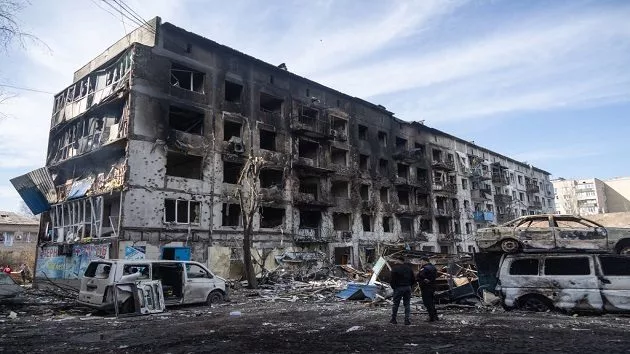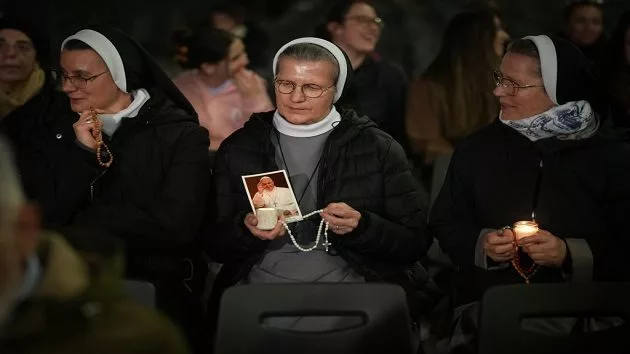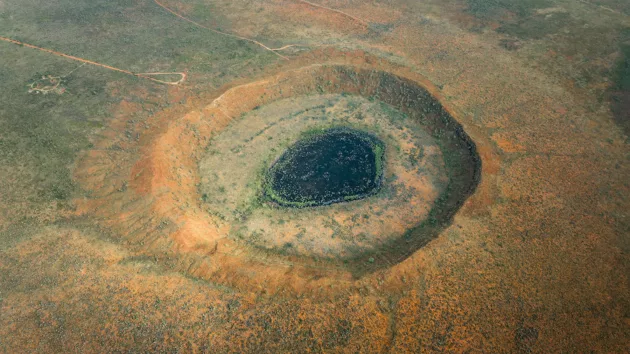
(NEW YORK) — Paul Whelan, a former American Marine who has been detained in Russia since 2018, recently had a visit in prison with U.S. Ambassador Lynne Tracy, who said on Twitter that securing Whelan’s release “remains an absolute priority.”
The visit came weeks after Whelan told his parents in a phone call that he felt “abandoned” and “rattled like never before” in the wake of Wall Street Journal reporter Evan Gershkovich’s arrest, Whelan’s brother David previously told ABC News.
Both Whelan and Gershkovich have been accused of espionage, which both have denied and the U.S. government considers them wrongfully detained.
In a new interview with ABC News’ Linsey Davis, David Whelan spoke about the details of Tracy’s visit and concerns that his brother’s case is “beginning to languish.”
LINSEY DAVIS: David, thanks so much for joining us once again. Just last week, the U.S. ambassador to Russia, Lynn Tracy, was able to meet with your brother at the prison camp where he’s being held. Tell us what you’ve learned from that meeting.
DAVID WHELAN: It sounds like they were able to speak for about 90 minutes, and I think it was a frank discussion. Paul is very appreciative every time a U.S. ambassador comes out to the prison or even consular staff. But this is the second time that a U.S. ambassador has come out to visit him and he values that, and he understands the risk that the ambassador took to come and see him and appreciated that she came to give him a personal message about the efforts that are going on back here in Washington, D.C..
DAVIS: And was she able to report back to you as far as his health, his overall well-being, state of mind?
WHELAN: We heard from Paul. He was able to speak to our parents, and it sounds like he’s stabilized since Mr. Gershkovich’s arrest. I think he is back to focusing on getting through each day, surviving as best he can and hoping that the U.S. government will be able to secure his release.
DAVIS: Your sister also appeared last month at the United Nations Security Council to call for Paul’s release. She got to look Russian Foreign Minister Sergey Lavrov directly in the eye. How significant was that moment?
WHELAN: I think that was really important. Elizabeth has done a lot of lobbying of the government. I think even from just trying to get the State Department’s attention four years ago, to be able to now have gotten to the U.N. Security Council and to have been able to make an address there. It’s really valuable, and I think Paul appreciated that really, we are not leaving any stone unturned to try and advocate for him and bring him home.
DAVIS: There’s been talk about a possible deal to get your brother home, a swap that could also include Evan Gershkovich. Is there calls for some optimism in those negotiations?
WHELAN: I don’t think so, not at the moment. We know that Secretary Blinken has spoken about an offer that was made, but it has been sitting there now for four or five months and the Kremlin doesn’t seem that interested in whatever the concession is. So either the US government is going to continue to wait, which means that Paul has to continue to sit in a labor camp for who knows how long or they will come up with other creative strategies. I hope that they’ll come up with creative strategies, and I hope that they’ll come up with something else that will bring Paul home.
DAVIS: President Biden also mentioned Paul at the White House Correspondents Dinner. Are you seeing any meaningful shift in urgency surrounding Paul’s case or do you still have the same concerns about his case languishing?
WHELAN: Oh, absolutely. It was great to see President Biden speak out. We appreciate all of the verbal sentiment of support from the White House, from President Biden, from secretary of state, and so on. But it doesn’t mean that there’s anything moving in Paul’s case at this moment. And I think we do worry that it is beginning to languish. It is getting to that point where in many other wrongful detention cases, like Mark Swidan and Kai Li in China, Siamak Namazi and Emad Shargi in Iran, there comes a time after which the U.S. government isn’t really very effective at bringing people home.
DAVIS: We still continue to hold out hope nonetheless. David, we thank you once again for coming on the show. We’ll of course continue to check in with you and your brother’s case.
WHELAN: Thanks so much for having me.
Copyright © 2023, ABC Audio. All rights reserved.





